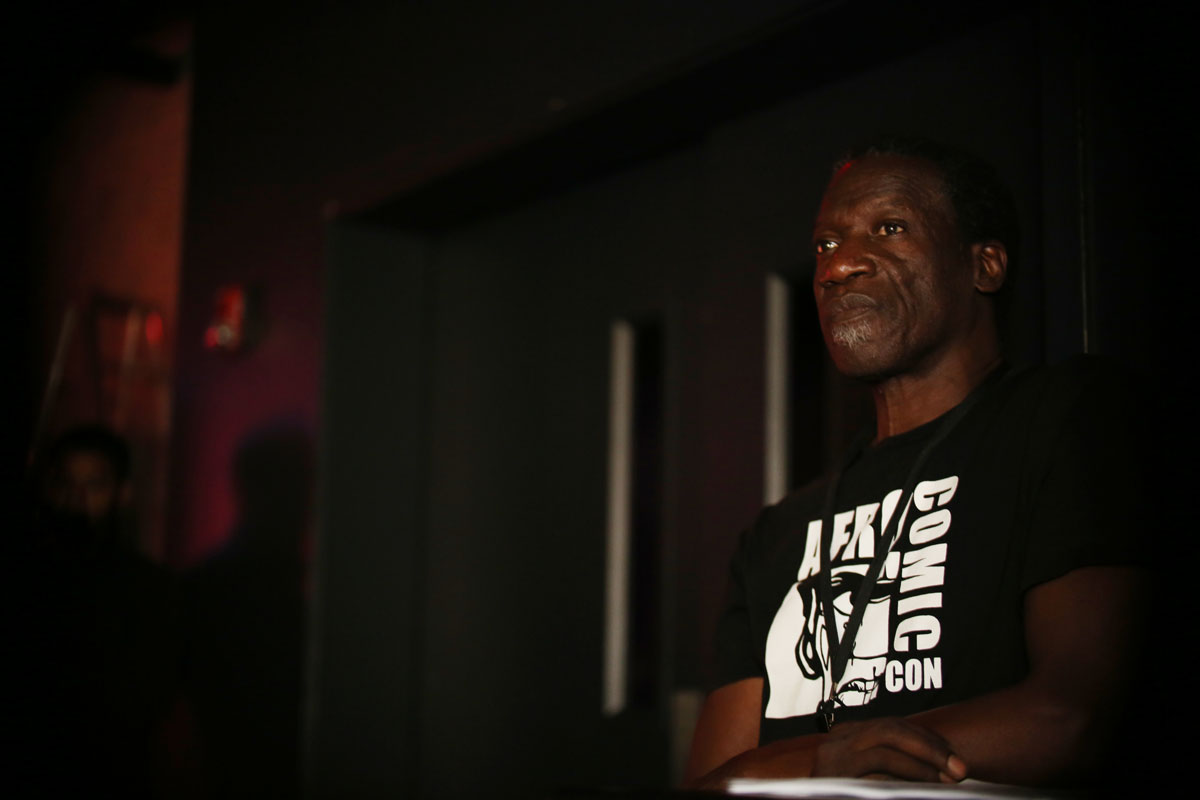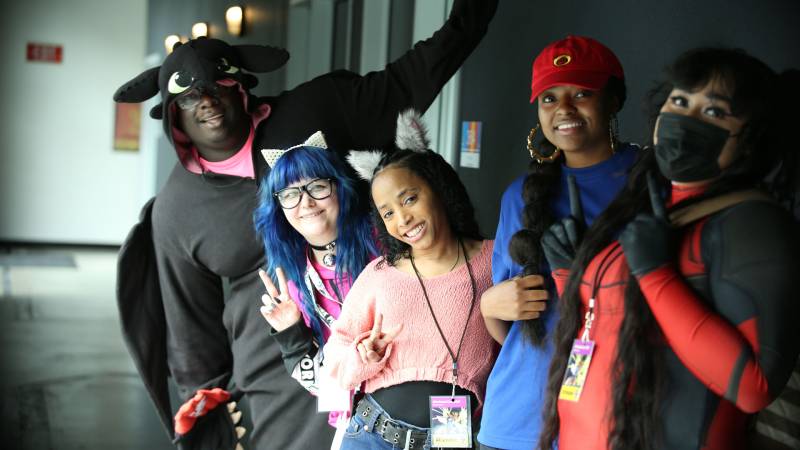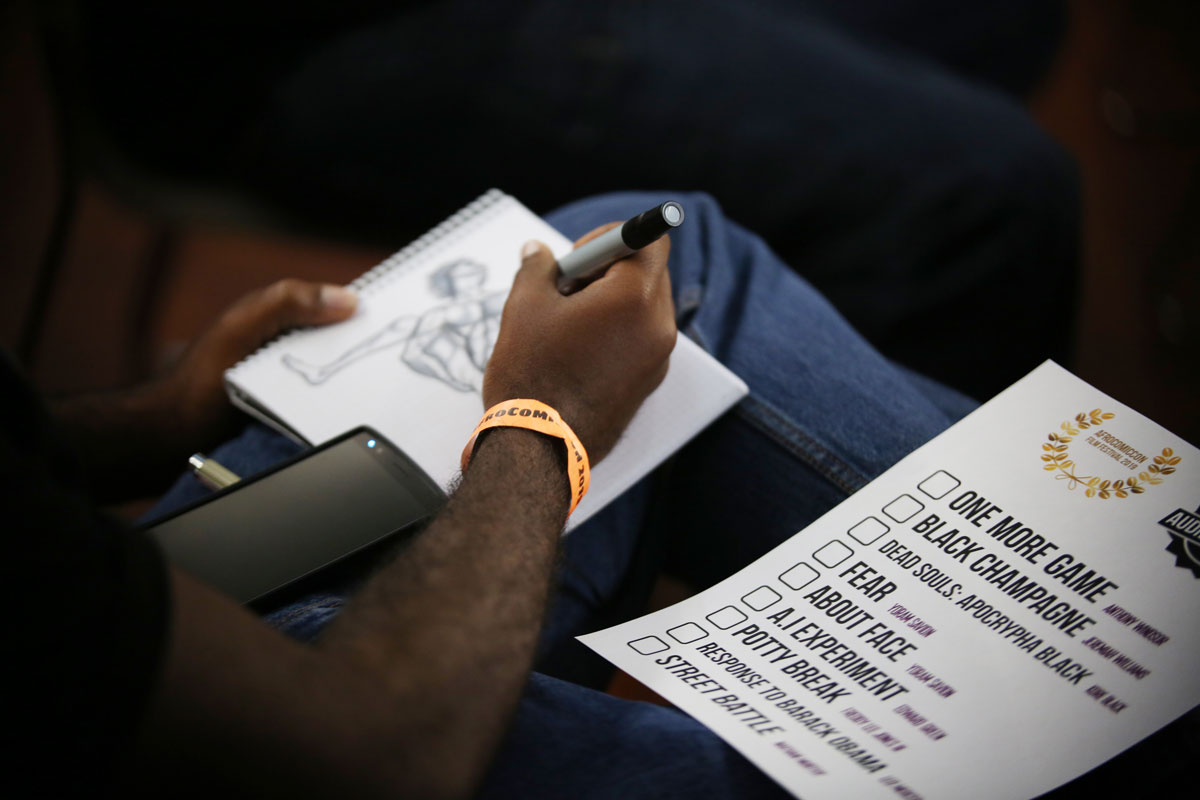When Theo Hollingsworth arrived at AfroComicCon in 2019, he was dressed as a character he’d written himself — a bold move for the convention newbie. In a sleeveless white lab coat and a futuristic pair of neon green shades, wielding a pair of nunchucks, Hollingsworth stumbled around the spacious venue, marveling at the number of Black and Brown artists, filmmakers and fellow comic-loving nerds gathered together. Many were dressed as heroes from iconic series like Black Panther and Spiderman. “Who are you?” someone asked, brushing past him at the cosplay contest. “Don’t worry about it,” Hollingsworth responded. “You’ll know soon enough.”
Hollingsworth, a department manager at Pixar and an independent filmmaker, still remembers how excited he felt that day. “I was just like, ‘Whoa, this is amazing.’ I had never met so many indie comic book artists. I got to see so many cool panels,” says Hollingsworth. “I didn’t expect it to be this level. There were people that traveled from out of state to come to this thing. I felt late to the game and I was really excited.”
This weekend marks AfroComicCon’s first re-entry into in-person programming since 2019, with a Youth Community Day on Oct. 23 and a film festival award ceremony on Oct. 26. While the return is long-awaited, it’s happening on a ‘much smaller scale’ due to a lack of funds, says co-founder Hally Bellah-Guther.

This year’s AfroComicCon will forego the convention component but attendees are still encouraged to dress up and come together at the two events, where a number of panels will be held and short films will be screened. Youth Community Day features a discussion with members from the Story Xperiential program as well as a screening of the 2020 Pixar short film Loop, while the AfroComicCon International Film Festival award ceremony will showcase and honor a selected number of finalists who submitted films earlier in the year.
Now an AfroComicCon organizer and film festival judge himself, Hollingsworth stresses the importance of having a platform that not only bolsters the work of Black and Brown independent creators but also helps them discover broader audiences. “The more that we can kind of help to promote and acknowledge their work, the closer they get to being able to get to an even larger stage and even bigger budgets and bigger distribution,” says Hollingsworth.




